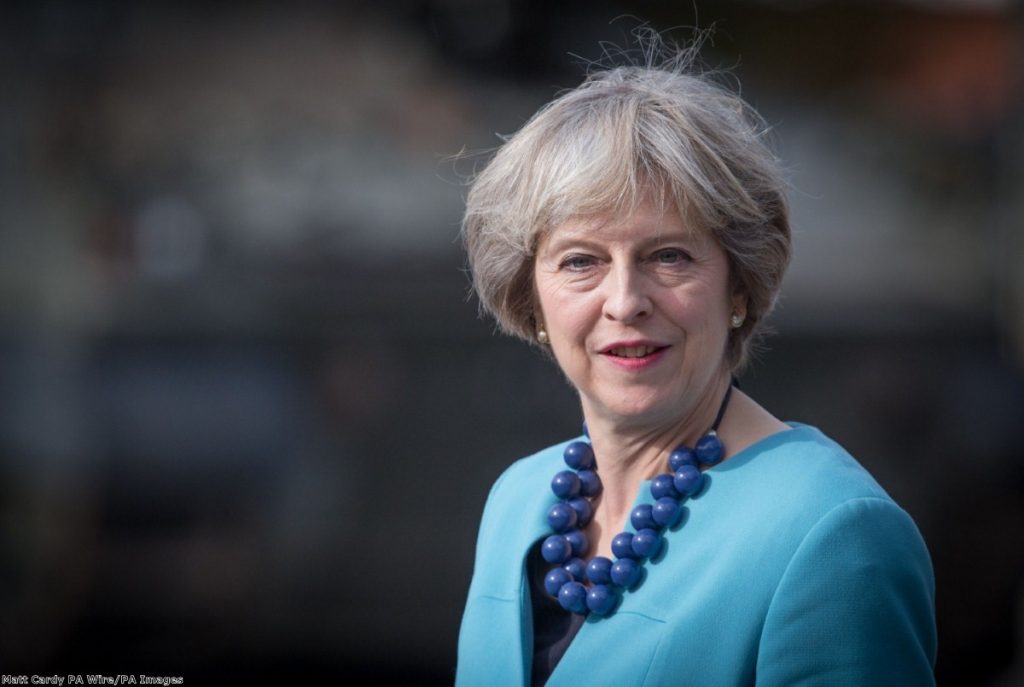One week, two speeches, both of them completely contradicted by the reality of what the prime minister is actually doing.
Theresa May issued her long-awaited Brexit plan speech in Lancaster House on Tuesday and then cut-and-pasted bits of it with some new sections for business leaders in Davos on Thursday. The speeches weren’t particularly good, her ideas weren’t particularly new and her delivery was not particularly impressive. But their central problem was that they are directly undermined by her own policies.
"We are all united in our belief that that world will be built on the foundations of free trade, partnership and globalisation," she said in Davos. This was a remarkable thing to say, given that just days earlier she had announced she was pulling Britain out of the European single market and customs union, which eliminate tariffs for goods across borders, standardises regulation so products can be traded more easily and in many cases allow people to sell their services overseas without new qualifications.
She then demanded that her well-heeled business audience show more social commitment and care for their communities. "We must heed the underlying feeling that there are some companies, particularly those with a global reach, who are playing by a different set of rules to ordinary, working people," she said. You'd never have known that this was the same prime minister who just two days earlier had been threatening to turn Britain into a tax haven if Europe didn't give her the deal she wanted. Now that might mostly involve lowering corporate taxes – itself rather against her line of argument – but it would also involve hammering down environmental, social and labour regulations. If she follows up on her plan for a trade deal with Donald Trump, it'll very likely involve a secretive investor dispute court, where firms can claim taxpayer money for government policy, as was found in the US-EU trade agreement. So which is the real Theresa May? The tax haven one aiming to secure a quick and dirty deal with Trump? Or the corporate social responsibility one?
She praised the European Union and demanded that it "should succeed", while executing a policy which fundamentally weakened and destabilised it during a time of crisis. She outlined a belief in a "global Britain", while pulling the UK out of EU free trade agreements with 63 countries.
Before blabbering on about all the trade agreements we'll now get to sign, best to make sure UK actually gets to keep ones it already has. pic.twitter.com/TPSZzNfAFI
— Samuel Lowe (@SamuelMarcLowe) January 18, 2017
She praised Britain's racial diversity and multiculturalism, while pursuing a hard Brexit strategy designed to placate Ukip and the right-wing fringe of her own party. She said she wanted to "strengthen the precious union between the four nations of the United Kingdom", while ignoring the will of the people of Scotland and Northern Ireland and pursuing the exact type of Brexit they had specifically said was intolerable. She said "the country is coming together" while offering those who voted Remain nothing and pursuing an extreme interpretation of a marginal referendum victory.
This was all classic double-think: What she did was in direct opposition to what she said. And yet the press bought it. They were somehow able to hold two completely contradictory thoughts in their head at once and not even notice.
When she was done with that, she simply started making stuff up. "In Britain," she told Davos business leaders, "we have embarked on an ambitious programme of economic and social reform that aims to ensure that, as we build this Global Britain, we are able to take people with us."
Eh? Which ambitious programme was that? Which bill does it relate to? Which policies? There was the proposal for workers on boards, of course, although May quietly dropped that after complaints from businesses. Now there's… promises. Of something in the future. The media report May's commitment to intervening in the economy uncritically, but there is literally nothing to show for it – not one intervention, not one policy, not one piece of legislation.
It almost makes you yearn for the days of New Labour, or the Coalition, or even the pre-Brexit Tory party. They would pretend that their policies were much more daring and radical than they were. They would pledge to end poverty or inequality and then unveil a bill with some modest proposal in it. But at least there was a bill there to unveil. At least they had to good grace to pretend to be doing something. May simply talks about programmes which do not exist.
Those are your two choices with the prime minister: rhetoric which is directly opposed to policy, or rhetoric for policies which do not exist. Of the two options, the latter is preferable.
Ian Dunt is the editor of Politics.co.uk. His book – Brexit: What The Hell Happens Now? – is out this week from Canbury Press.
The opinions in politics.co.uk's Comment and Analysis section are those of the author and are no reflection of the views of the website or its owners.





-01.png)